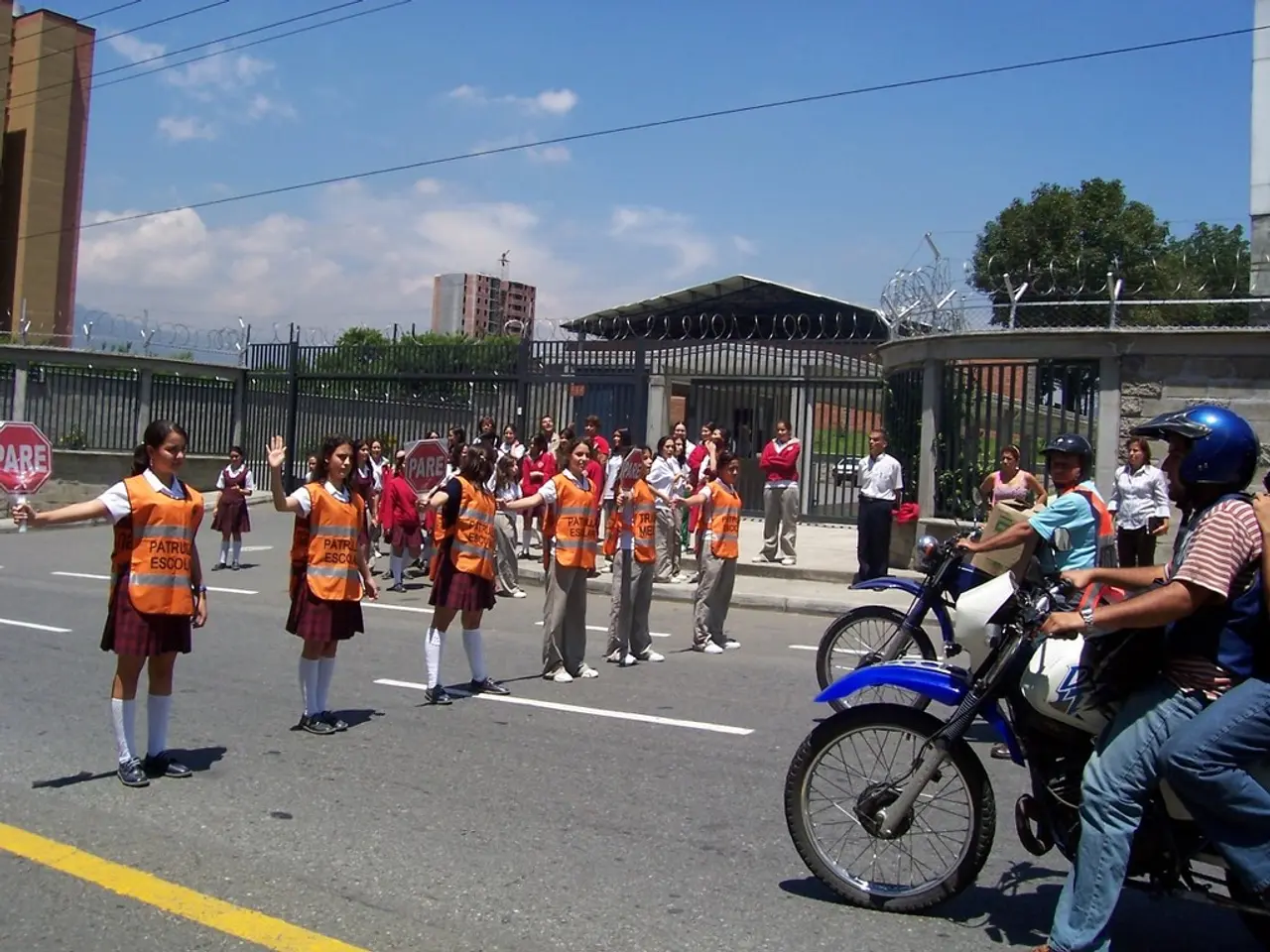Pupils receive instruction on road safety
In Petropavlovsk-Kamchatsky, traffic police inspectors are conducting preventive lessons in school camps during the summer, aiming to reduce child road injuries and reinforce knowledge of traffic rules learned during school.
Yesterday, Major of Police Natalia Zelenkova and Lieutenant of Police Olga Luchinskaya visited the camp of MАOU "Middle School No. 33". The police officers' visit was focused on traffic safety propaganda, and they conducted an in-depth study of certain subjects with the students.
During the discussions, the inspectors highlighted the rules of behavior near roadways, in transport, and in courtyards, with a focus on young cyclists and users of individual mobility devices.
While specific local regulations for Petropavlovsk-Kamchatsky could not be found from the search, general Russian traffic law and common regional practices offer some insights. Russian federal traffic regulations (ПДД РФ) regulate bicycle use and may apply to users of individual mobility devices such as electric scooters or hoverboards.
Young cyclists typically require bicycle helmets and must obey traffic signals and rules for crossing roads, usually using bike lanes or sidewalks. Individual mobility devices often fall under pedestrian rules unless specially regulated; sometimes they are classified as vehicles, requiring adherence to specific road use laws.
Local authorities in cities like Petropavlovsk-Kamchatsky typically enforce these rules but may have city-specific bylaws or enforcement practices. For detailed and authoritative traffic safety rules and regulations regarding young cyclists and individual mobility device users in Petropavlovsk-Kamchatsky, it is recommended to consult local municipal legal acts or traffic regulation documents from the city administration or Kamchatka Krai government, the Russian State Traffic Safety Inspectorate (ГИБДД) regional office website or offices in Kamchatka, or any official local transport or road safety programs targeting youth or new mobility device users.
The police emphasized that riding on the roadway is only allowed from the age of 14, and crossing the road should be done at pedestrian crossings, dismounting and following all rules before continuing. The photograph of the event was taken by the "Police of Kamchatka" tg-channel, showing the active participation of the students in the discussions. Similar preventive events are planned in all school camps in Petropavlovsk-Kamchatsky.
Science in the field of health and wellness could benefit from studies on the impact of educational programs, such as the traffic safety lessons in school camps, on the reduction of child road injuries. These lessons, as illustrated in Petropavlovsk-Kamchatsky, can help reinforce knowledge of traffic rules and promote safe behaviors among young cyclists and users of individual mobility devices.




